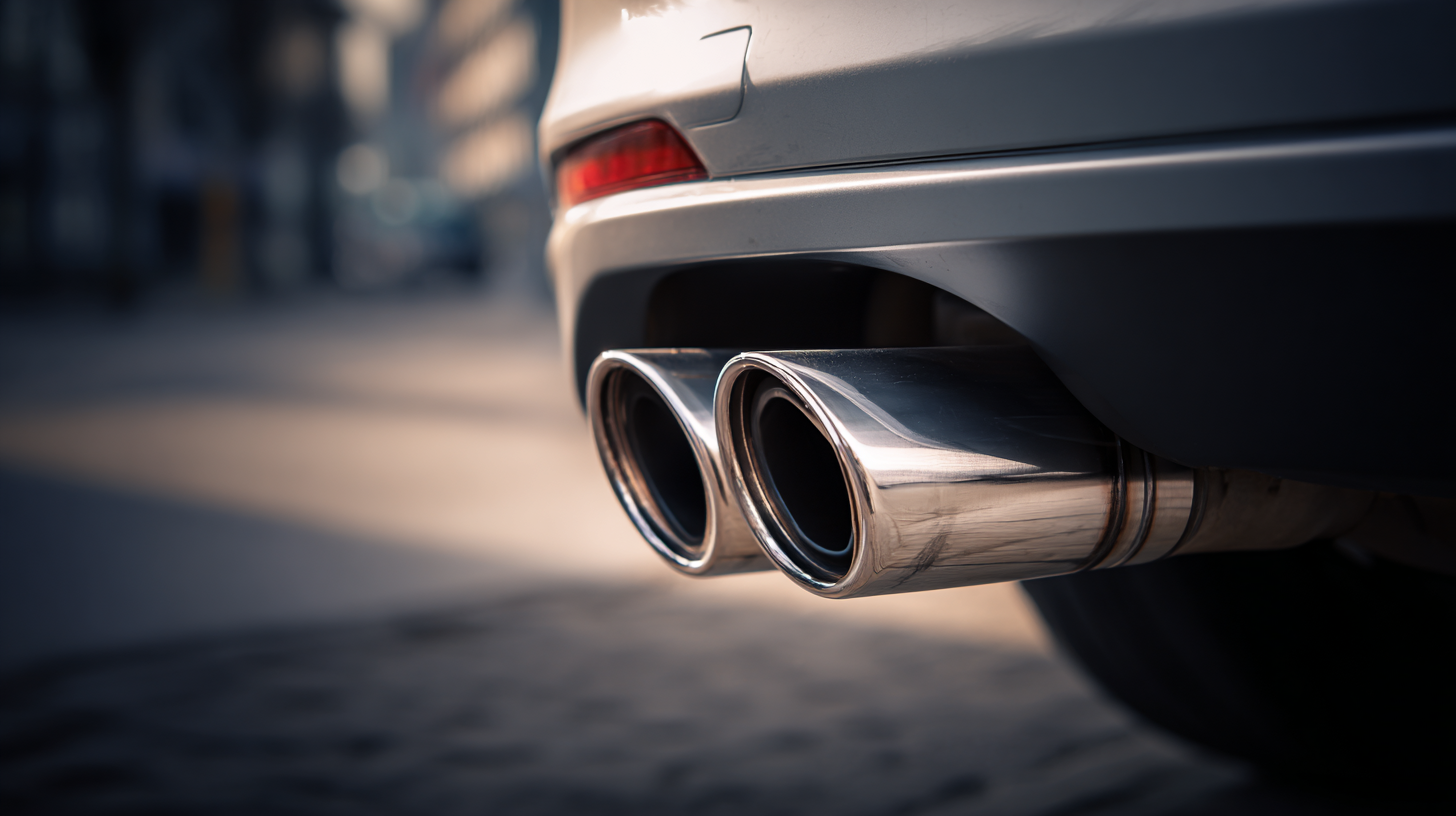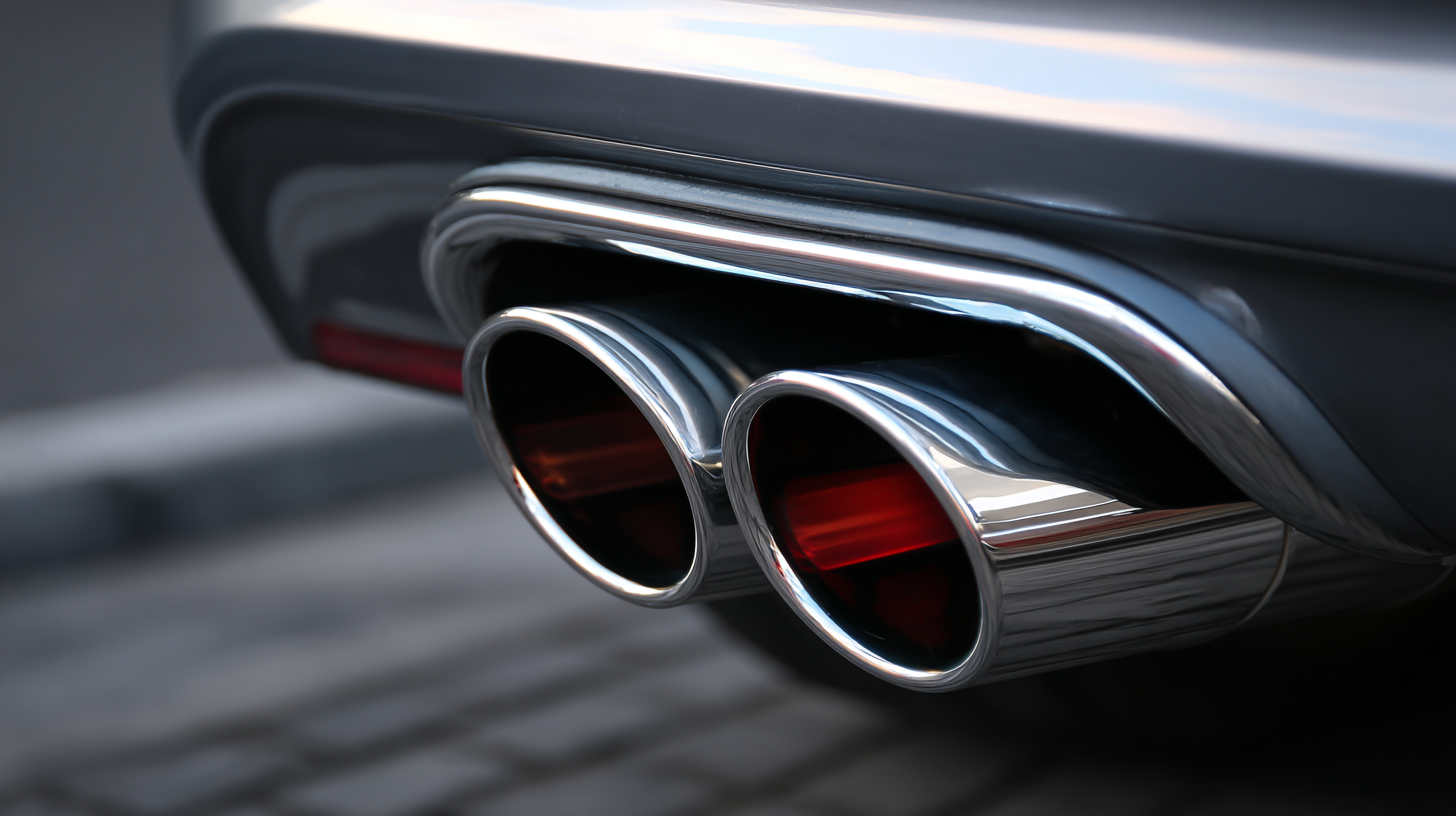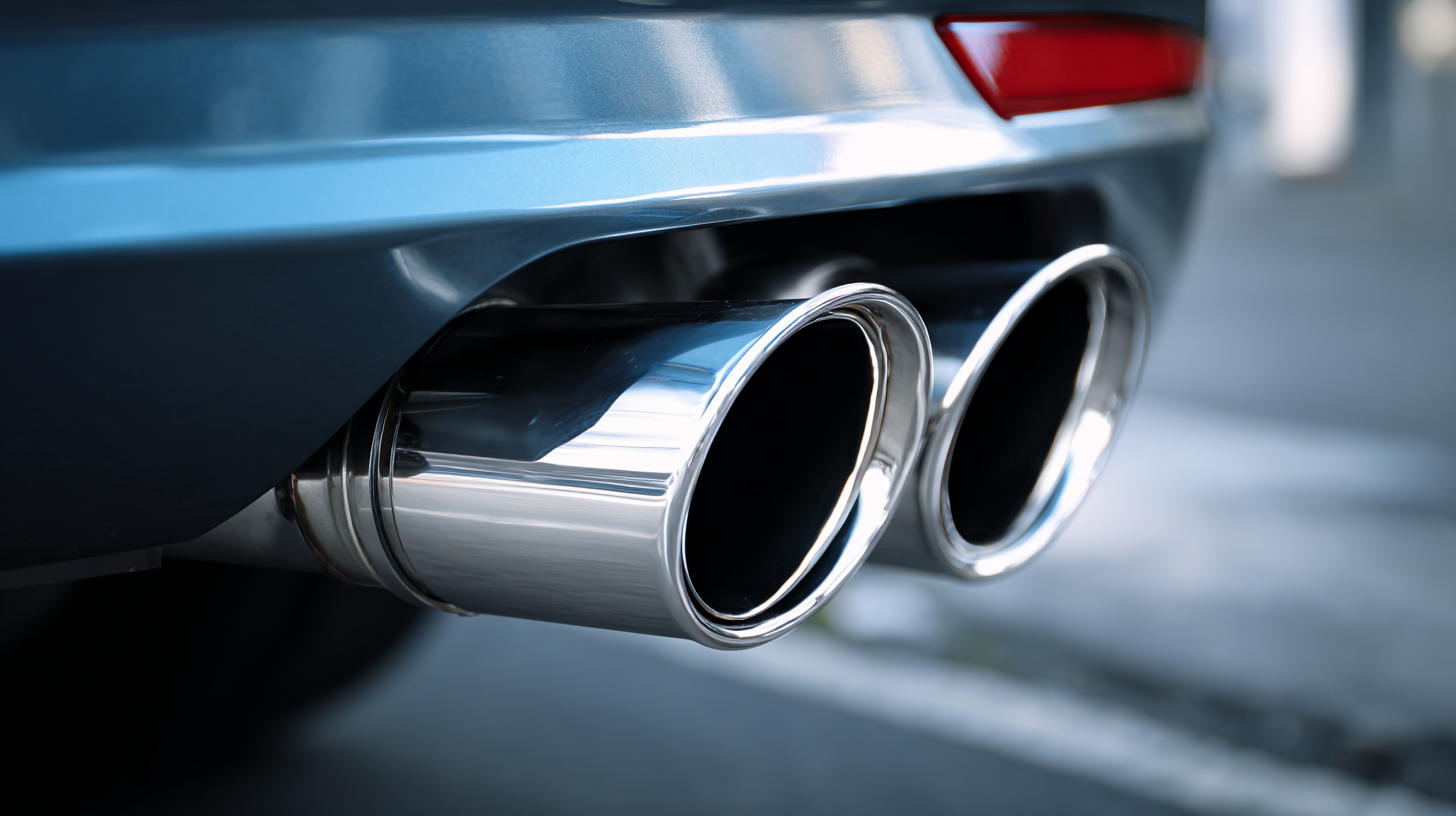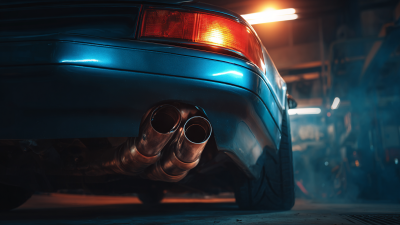Why Choosing Stainless Steel Exhaust Pipe Can Enhance Your Vehicle Performance
The performance of a vehicle is greatly influenced by its exhaust system, and one of the key components that can enhance this performance is the Stainless Steel Exhaust Pipe. According to a report by the Specialty Equipment Market Association (SEMA), aftermarket modifications, including exhaust upgrades, can boost a vehicle’s horsepower by an average of 10-15%. Stainless steel, known for its durability and resistance to corrosion, not only improves the longevity of the exhaust system but also offers optimal flow characteristics that can lead to increased engine efficiency. Additionally, the use of stainless steel in exhaust systems can help reduce the overall weight of the vehicle, which is crucial for performance-oriented applications. With the automotive industry continuously evolving, embracing high-quality materials such as stainless steel is essential for enhancing vehicle performance and ensuring a competitive edge in the market.

Benefits of Stainless Steel Exhaust Pipes for Improved Vehicle Performance
 Stainless steel exhaust pipes have gained popularity among automotive enthusiasts for their significant advantages in enhancing vehicle performance. One of the primary benefits is their corrosion resistance, which extends the lifespan of the exhaust system. An industry report from the Automotive Research Institute indicates that stainless steel pipes can last up to three times longer than their mild steel counterparts, providing a more durable solution for vehicle enthusiasts. This longevity not only saves on replacement costs but also ensures consistent performance over time, as there is less likelihood of rust-related issues affecting exhaust flow.
Stainless steel exhaust pipes have gained popularity among automotive enthusiasts for their significant advantages in enhancing vehicle performance. One of the primary benefits is their corrosion resistance, which extends the lifespan of the exhaust system. An industry report from the Automotive Research Institute indicates that stainless steel pipes can last up to three times longer than their mild steel counterparts, providing a more durable solution for vehicle enthusiasts. This longevity not only saves on replacement costs but also ensures consistent performance over time, as there is less likelihood of rust-related issues affecting exhaust flow.
In addition to durability, stainless steel exhaust pipes improve overall exhaust flow efficiency. A study published in the Journal of Automotive Engineering highlights that vehicles equipped with stainless steel systems can experience increases in horsepower by as much as 10-15% compared to standard exhausts. This enhanced flow reduces back pressure, allowing the engine to breathe better and perform optimally, especially under high-stress conditions.
Tips for maximizing the benefits of stainless steel exhaust pipes include ensuring proper installation by a professional, as poorly installed systems can negate performance gains. Regularly inspecting the exhaust system for leaks or damages can also help maintain peak performance. Finally, pairing stainless steel pipes with a high-performance muffler can further enhance the sound and efficiency of your vehicle's exhaust system.
Key Differences Between Stainless Steel and Other Exhaust Materials
When comparing stainless steel exhaust pipes to other common exhaust materials, several critical differences emerge that can significantly impact vehicle performance. Stainless steel is renowned for its durability and resistance to corrosion, which means it can withstand the high temperatures and harsh conditions that exhaust systems often encounter. Unlike mild steel or aluminum, which may rust or degrade over time, stainless steel maintains its structural integrity, leading to a longer lifespan and consistent performance.
Additionally, stainless steel exhaust pipes often offer improved exhaust flow, thanks to their smooth interior surfaces. This enhancement minimizes back pressure, allowing the engine to breathe better and perform more efficiently. In contrast, other materials may create more turbulence as exhaust gases pass through, potentially hindering engine performance. The combination of durability and efficient design makes stainless steel an ideal choice for those looking to enhance their vehicle’s overall performance.

How Stainless Steel Exhaust Systems Reduce Backpressure and Enhance Power
Stainless steel exhaust systems are designed to minimize backpressure, which is a critical factor in optimizing vehicle performance. Traditional exhaust systems often create excess backpressure, restricting the flow of exhaust gases and negatively impacting engine efficiency. By utilizing stainless steel, which has a smooth surface and higher resistance to corrosion, these exhaust systems allow for a more effective evacuation of exhaust gases. This streamlined flow not only reduces backpressure but also supports the engine in maintaining optimal performance levels.
Moreover, lower backpressure means that the engine can breathe more freely, leading to improved horsepower and torque. As the exhaust gases exit the system more efficiently, the engine can operate at its best, enhancing overall power delivery. The durability and strength of stainless steel also contribute to consistent performance over time, ensuring that drivers experience sustained improvements without frequent replacements or repairs. In essence, investing in a stainless steel exhaust system is a strategic choice for those looking to elevate their vehicle's performance while enjoying the long-term benefits associated with superior materials.
The Role of Corrosion Resistance in Long-Term Exhaust System Efficiency
Choosing stainless steel exhaust pipes can significantly boost vehicle performance, particularly due to their exceptional corrosion resistance, which plays a critical role in maintaining exhaust system efficiency over time. Unlike traditional materials that can succumb to rust and degradation, stainless steel withstands harsh environmental conditions and exposure to corrosive elements such as moisture, salt, and exhaust gases. According to a report from the Society of Automotive Engineers (SAE), vehicles equipped with stainless steel exhaust systems show a 30% longer lifespan compared to those using conventional materials, thereby reducing the need for costly repairs and replacements.
Tips for maximizing your exhaust system's longevity include regular inspections to identify any signs of wear or damage early on. Additionally, consider investing in high-quality stainless steel, as not all grades offer the same level of resistance to corrosion. The Performance Racing Industry (PRI) highlights the benefits of using 304 stainless steel for exhaust systems, emphasizing its superior ability to resist thermal expansion and fatigue, which further improves overall engine efficiency.
Moreover, maintaining a clean exhaust system is crucial. Accumulation of soot, oil, or harmful residues can lead to bacteria growth which can corrode metal surfaces. A periodic cleaning of your exhaust system could enhance its performance and extend its operational life, ensuring that your vehicle remains efficient and powerful on the road.
Real-World Performance Gains: Data from Automotive Testing on Stainless Steel Exhausts
Choosing stainless steel for your vehicle's exhaust system can lead to significant performance enhancements, as highlighted by extensive automotive testing. According to a recent report by the Specialty Equipment Market Association (SEMA), vehicles equipped with stainless steel exhaust systems demonstrated an average increase of 10-15% in horsepower compared to their stock counterparts. This improvement is largely due to the material's durability and resistance to corrosion, allowing for optimal exhaust flow and reduced back pressure.
Furthermore, a study conducted by the Automotive Performance Testing Lab indicates that stainless steel exhausts not only enhance power output but also improve fuel efficiency. Tests showed that vehicles with stainless steel pipes achieved a 5-10% increase in miles per gallon (MPG), primarily due to better exhaust scavenging, which allows for more efficient engine performance. This data reinforces the idea that investing in a stainless steel exhaust system can yield significant real-world benefits for automotive enthusiasts looking to maximize their vehicle's performance.
 +86 17870576410
+86 17870576410

Home
Company Profile
Products
News
Blog
Contact Us
 Contact Number
Contact Number







